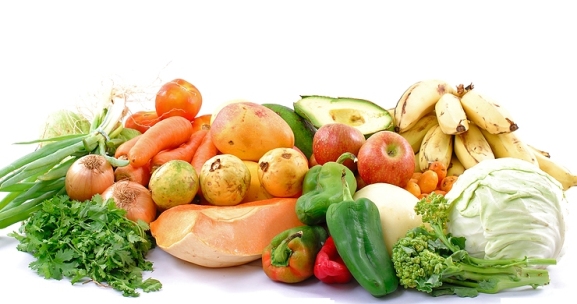
Organic produce: It's not always beautiful on the outside but it's all goodness inside.
Should you eat organic? After all, you could get a lot of extra snacks with your “savings” from buying conventional food. Which is solid logic if you are only planning to be around for the next six months.
Ok, don’t stress – six months is a fairly debatable number. There is still major discussion about how long it takes for agricultural chemicals and additives to build up in the body to a point where they affect well-being, and in any case, most people have long passed that threshold. There are also many respected scientists happy to tell you these chemicals have no side effects at all – as you might expect, given the multi-billion-dollar vested interests involved in producing our food.
The debates over whether organic foods offer nutritional advantages are also unlikely to go away anytime soon. In many studies that do find a difference, the levels are not considered statistically significant. But while these levels may not add up to much in lab tests, they can be extremely significant over the course of a lifetime. Reactions also vary widely. Chemicals that have no noticeable effect for most people can cause serious illness in those with allergies and sensitivities.
The point here is while it seems logical chemical residues will be harmful, the research is far from clear – for whatever reason. So, forget the research. A more individualized and practical way to approach this is to buy a selection of organic and conventional food and do your own three-week experiment. If you are an omnivore, make sure you include organic meat, fish, eggs, milk, etc., given the staggering levels of hormones and antibiotics used in animal farming.
Is bigger always better?
Again, three weeks is a debatable number. This is simply the time many people report feeling improvements when they switch out a significant part of their diet with organic food. As for what improvements to look for, chemicals and additives have been linked to everything from joint pain and fat gain to brain fog and sleep problems. If you want confirmation, just switch conventional foods back in and monitor the results. Try to be as specific as possible and focus on the effects of individual items.
You are also likely to notice a difference in taste. Studies show many people cannot discern any real difference between organic and non, taste-wise. But these one-off tests are misleading as many additives dull our taste buds and we need time to appreciate real flavors again. After a couple of weeks, grab some tomatoes. How do the standard ones taste? Probably pretty watery. Which may seem contradictory because they are likely to be bigger and more robust-looking than the organic ones.
Assuming some scientist hasn’t spliced in a random fish gene (a GMO experiment to increase frost resistance that fortunately was not commercialized), the main reason for this is standard crops are grown using large volumes of water and size-boosting nitrogen, phosphorus, potassium-based (NPK) fertilizers. This allows farms to rapidly grow large, cheerful-looking produce even on land that is being steadily depleted of trace minerals and other essential elements.
When is organic not better?
This point about soil depletion is worth keeping in mind because it provides a clue as to why some organic food may not actually stack up in terms of nutrient content – as has been sited in several studies. Basically, anything grown on depleted land will be less nutritious, even if it is herbicide and pesticide free. This fact at least is borne out by a US Department of Agriculture study that found major drops in crop nutrient levels between 1950 and 1999.
Most organic farms address this by rotating crops and remineralizing with rock dust or marine and other natural fertilizers. However, if they don’t and there is too much time between harvesting and final consumption, you may be better off just eating recently picked, local conventional produce. Obviously it is difficult to know the soil condition but at least consider the time factor when deciding between cheap or exotic imported foods and less exciting, more expensive local ones – organic or not.
So, what is the take-home message? Well, in a universe where standard biological laws apply, you are going to do better with local organic food grown in mineral-rich soil and consumed soon after harvesting. But test this for yourself with a three-week experiment. And what about the price? Are the health and taste benefits worth the extra money? You may not think so after your trial but how about when you are in your golden years? Pay a little extra now so you don’t pay a whole lot more then.
